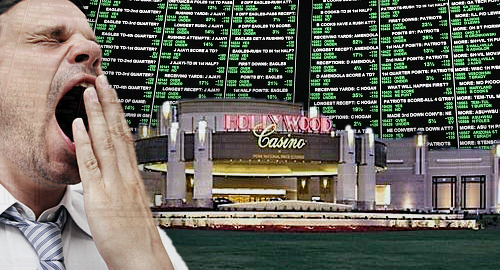 Regional casino operator Penn National Gaming (PNG) more than tripled its net income in the second quarter of 2018 despite only a modest increase in revenue.
Regional casino operator Penn National Gaming (PNG) more than tripled its net income in the second quarter of 2018 despite only a modest increase in revenue.
Figures released Thursday show PNG generated revenue of $827m in the three months ending June 30, a 3.8% gain on the same period last year. By contrast, adjusted earnings were up 8.6% to $247.1m and net income hit $54m from just $17.1m last year.
A few caveats: first, adjusted earnings fell to $131.2m (+15.6%) once you subtract the rent PNG pays its real estate investment trust landlord Gaming and Leisure Properties Inc. Second, PNG changed its definition of adjusted earnings in Q1 to “enhance comparability with our competitors’ definition” of the metric.
Those quibbles aside, PNG’s three main geographic categories were all in positive territory in Q2, with the Northeast region’s eight properties rising 4.4% to $423m, the South/West segment’s eight venues up 6.5% to $163.4m and the Midwest segment’s eight venues rising 1.6% to $230.5m.
PNG said it expects its Q3 revenue to be essentially flat year-on-year at $807m, while adjusted earnings (minus rent) will come in around $116m and net income will total $40.8m.
Speaking on the ensuing analyst call, PNG CEO Timothy Wilmott said the company expects to conclude its acquisition of 12 Pinnacle Entertainment properties by early Q4 thanks to relatively painless regulatory approvals in the states where those properties reside. The same closure timeline applies for PNG’s recent acquisition of Louisiana’s Margaritaville Resort Casino.
PNG expects to unveil details of its Pennsylvania mini-casino plans by early September. Earlier this month, PNG dropped its legal challenge of the state’s mini-casino authorization, choosing instead to focus on the opportunities presented by its two proposed new venues.
As for legal sports betting, Wilmott said PNG was “actively working in Mississippi, West Virginia and in Pennsylvania to hopefully get up by football season our sports betting operations there.”
Wilmott suggested that sports betting would likely prove more beneficial in terms of increased hotel room bookings and table drop than from the actual betting revenue. As such, Wilmott said PNG wouldn’t be making “any huge investments in large scale” sportsbook development, although he qualified that these operations would be “nice” and “entertaining.”
PNG has also submitted its application to operate online gambling in Pennsylvania, with an eye toward an “early 2019” launch, and Wilmott figures PNG can make a go of the online game “despite the high tax rate [54%] on the slot revenues.”